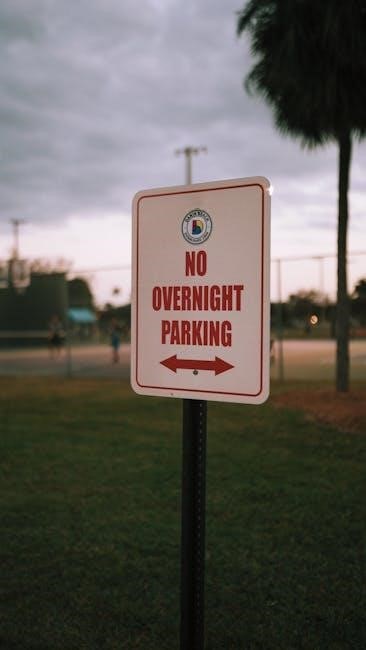Samba is a popular card game, a variation of Canasta, requiring strategy and skill. Understanding its rules is essential for enjoyable and fair gameplay. The official Samba rules PDF provides detailed guidance, ensuring players grasp melding, scoring, and winning conditions. It’s a must-have resource for both newcomers and experienced players.
1.1 Overview of Samba as a Card Game
Samba is a dynamic variation of Canasta, played with three 52-card decks, including jokers. It involves melding cards into valid sets and runs to score points. The game requires strategy and skill, blending luck with tactical thinking. Understanding the rules is key to mastering this popular card game, which offers a fun and challenging experience for players of all skill levels.
1.2 Importance of Understanding the Rules
Understanding Samba rules is crucial for fair play and maximizing enjoyment. The official Samba rules PDF outlines essential guidelines, including melding, scoring, and penalties. Grasping these ensures players avoid common mistakes and disputes. The rules also clarify winning conditions and strategies, making it a vital resource for both beginners and experienced players to enhance their gameplay and overall experience.

Basic Setup for Playing Samba
Setting up Samba requires three 52-card decks, including six jokers. Each player receives 15 cards. The game supports 2-6 players, ensuring dynamic interaction and strategic play.
2.1 Number of Players Required
Samba can be played with 2 to 6 players, making it versatile for small or large groups. The game uses three 52-card decks, including six jokers. Each player receives 15 cards at the start. The number of players directly impacts the game’s dynamics, with more players increasing complexity. This setup ensures balanced gameplay and strategic interaction among participants. The rules accommodate various group sizes, making Samba accessible and enjoyable for everyone.
2.2 Deck Composition and Special Cards
Samba uses three standard 52-card decks, totaling 156 cards, plus six jokers, adding 162 cards in play. Jokers and red threes serve as wild cards, enhancing strategic options. The deck includes all ranks from Ace to King, with suits playing a crucial role in forming sequences. Special cards like black threes have unique rules, impacting scoring and gameplay. This setup ensures a dynamic and engaging experience for players.
Objective of the Game
The goal in Samba is to meld cards into valid sets and runs to score points. Players aim to reach a target score by forming combinations efficiently.
3.1 Melding Cards and Scoring Points
Melding involves grouping cards into sets (three or four of a kind) or runs (sequences of three or more in the same suit). Each meld earns points based on card values. Red threes are worth 100 points each, while jokers and wild cards add 50 points. Completing a Samba (a run of seven cards) grants a 1,500-point bonus. Proper card combinations maximize your score, ensuring competitive gameplay.
3.2 Winning Conditions and Target Score
The game concludes when a team reaches the target score of 10,000 points. Victory is achieved by completing Sambas or Canastas, with red threes and wild cards adding significant points. Teams earn bonuses for forming unique melds, while unmelded cards in hand result in penalties. The first team to accumulate 10,000 points wins, emphasizing strategic card play and efficient melding to achieve the desired score.

Detailed Rules of Samba
The game involves dealing cards, forming valid melds, and strategically using wild cards. Penalties apply for illegal moves, ensuring adherence to the rules for a fair game.
4.1 Dealing the Cards
In Samba, the game begins with dealing the cards. Each player receives 15 cards, and the deck consists of three 52-card decks plus six jokers. The dealer shuffles and distributes the cards evenly among 2-6 players. The remaining cards form the draw pile, with the top card turned over to start the discard pile. This setup ensures a balanced and exciting start to the game, adhering to the rules outlined in the official Samba rules PDF.
4.2 Gameplay and Turns
Gameplay proceeds clockwise, with each player drawing a card and attempting to meld sets or runs. A turn consists of drawing, potentially melding, and discarding one card. Players can pick up the top card of the discard pile if it aids their meld. The round ends when a player’s team has completed the required melds. Strategy and communication are key, as outlined in the official Samba rules PDF.
4.3 Forming Valid Melds
A valid meld in Samba consists of sets (three or more cards of the same rank) or sequences (three or more consecutive cards of the same suit). A Samba requires a run of seven cards in one suit. Wild cards can substitute missing cards but cannot form a Samba alone; Illegal melds result in penalties, emphasizing adherence to rules for fair play, as detailed in the official Samba rules PDF.
Scoring in Samba
Scoring in Samba is based on melded cards, with points awarded for valid sets and sequences. Bonuses are given for completing Sambas, while penalties apply for illegal melds, ensuring adherence to the official Samba rules PDF for fair play.
5.1 Points for Melded Cards
Points in Samba are awarded based on the value of melded cards. Aces, Kings, Queens, and Jacks are worth 20 points each, while 10s, 9s, and 8s are worth 10 points each. Number cards 7 to 2 are valued at 5 points each. Jokers and wild cards also contribute to the score, with specific point allocations outlined in the official Samba rules PDF to ensure accurate scoring during gameplay.
5.2 Bonuses for Special Melds
Special melds in Samba, such as completing a Red or Black Samba, award significant bonuses. A Red Samba, consisting of seven sequential cards in the same suit, grants a 1,500-point bonus. A Black Samba, with six sequential cards plus a wild card, awards 1,000 points. These bonuses are outlined in the official Samba rules PDF, emphasizing their importance in achieving high scores and winning the game.
5.3 Penalties and Negative Scoring
In Samba, penalties and negative scoring occur for illegal melds or improper gameplay. Players lose points for cards left in hand or for forming invalid melds. Negative scoring also applies to misuse of wild cards. The official Samba rules PDF details these penalties, ensuring fair play and adherence to guidelines. Understanding these rules helps players avoid common mistakes and maintain a competitive edge in the game.
Advanced Strategies
Mastering Samba requires strategic planning and skill. Players must focus on forming valid melds and using wild cards effectively to maximize points. The official Samba rules PDF offers insights into advanced techniques, helping players refine their gameplay and achieve higher scores. These strategies enhance overall performance and ensure a competitive edge in the game.
6.1 Building and Completing Sambas
Building and completing Sambas requires skill and strategy. A Samba is a sequence of seven cards in the same suit, such as Ace through King. Players must carefully collect and arrange cards to form valid Sambas. Using wild cards like Jokers can help complete sets, but they must be replaced once the actual card is drawn. Completing a Samba earns significant bonuses, making it a key objective in the game. The official Samba rules PDF provides detailed guidance on forming and scoring Sambas effectively.
6.2 Managing Wild Cards Effectively
Wild cards, such as Jokers, are crucial in Samba for completing melds. They can substitute for missing cards but must be replaced with the actual card once it’s drawn. Effective use of wild cards enhances flexibility and strategy. The Samba rules PDF outlines specific guidelines for wild card usage, ensuring players maximize their utility without violating game rules; Proper management of wild cards can significantly influence a player’s ability to form valid melds and achieve higher scores.
Official Samba Rules PDF
The official Samba rules PDF is a comprehensive guide detailing gameplay, scoring, and strategies. Published on December 2, 2020, it’s downloadable at 245.68 KB, ensuring clarity for players.
7.1 Sources for Downloading the PDF
Multiple platforms offer the official Samba rules PDF. Websites like Astra Linux Special and Samba official resources provide direct download links. Additionally, card game forums and communities share downloadable versions. Ensure to verify authenticity for accurate rules and guidelines when accessing the document from various sources online.
7.2 Key Sections in the Official Document
The official Samba rules PDF includes essential sections such as game setup, melding rules, scoring systems, and winning conditions. It also covers advanced strategies, variations like Red and Black Sambas, and common mistakes to avoid. Detailed explanations of card values, penalties, and special melds are provided, ensuring comprehensive understanding for players of all levels.

Variations of Samba Rules
Red and Black Samba sets offer different scoring opportunities, with Red Sambas requiring seven sequential cards and Black Sambas using six cards plus a wild card.
8.1 Red and Black Samba Sets
A Red Samba is a sequence of seven cards in the same suit, such as Ace through King, awarding a 1500-point bonus. A Black Samba consists of six sequential cards in the same suit plus one wild card, scoring 1000 points; These sets are central to the game’s strategy, with bonuses awarded only if completed during gameplay. Players must avoid duplicate Sambas in the same suit to prevent penalties. Proper execution enhances scoring opportunities and game dynamics.
8.2 Differences in Scoring Systems
Scoring systems vary slightly between Red and Black Sambas. A Red Samba awards 1,500 bonus points, while a Black Samba grants 1,000 points. Individual card values also contribute to the score, with Aces and 2s worth 20 points each, 3s through 7s worth 5 points, and 8s through Kings worth 10 points. Penalties apply for unused cards, deducted from the team’s total score at the end of the game.

Common Mistakes to Avoid
Players often make illegal melds, forgetting that only sets and runs of seven cards are valid. Misusing wild cards is another mistake, as they cannot be added to completed Sambas. Additionally, failing to discard extra cards properly can lead to penalties and lost points. Awareness of these errors ensures smoother gameplay and better strategy implementation.
9.1 Illegal Melds and Penalties
Illegal melds occur when players form invalid sets or runs, such as adding Black 3s to a completed Samba or creating duplicate Sambas in the same suit. Penalties are imposed for such violations, deducting points and potentially disqualifying teams. Proper understanding of melding rules is crucial to avoid these mistakes and maintain fair gameplay. Always ensure melds meet the required criteria to prevent penalties and keep the game flowing smoothly.
9.2 Misuse of Wild Cards
Misusing wild cards, such as Jokers, is a common mistake. They can only be used to substitute missing cards in melds, not to extend sequences beyond valid limits. Improper use leads to penalties and invalidates melds, affecting team scores. Players must ensure wild cards are employed correctly to avoid disciplinary actions and maintain game integrity. Proper utilization enhances strategy without breaking the rules. Awareness of their role is key to successful gameplay.
Learning Resources
Discover tutorials and video guides to learn Samba. Printable rule sheets offer clear instructions, strategies, and tips for mastering the game effectively through practice.
10.1 Tutorials and Video Guides
Tutorials and video guides are excellent resources for learning Samba; They provide step-by-step instructions, strategies, and visual demonstrations. Many official channels offer detailed videos explaining rules, melding techniques, and scoring systems. These guides are particularly helpful for beginners, as they break down complex concepts into easy-to-understand lessons. Additionally, video guides often cover advanced strategies, such as managing wild cards and completing Sambas efficiently. They are accessible on platforms like YouTube and official Samba websites, making learning convenient and engaging. Printable rule sheets are also available for quick reference, ensuring players can practice and improve their skills effectively.
10.2 Printable Rule Sheets
Printable rule sheets for Samba are widely available, offering a concise and portable reference. These sheets summarize key rules, scoring systems, and gameplay basics. Players can download them from official Samba websites or related forums. They are ideal for quick reviews, ensuring clarity on rules like melding, wild card usage, and penalties. Printable sheets are also great for sharing with teammates or newcomers, making it easier to learn and practice the game effectively.
Samba, a vibrant Canasta variation, offers a unique blend of strategy and fun. Mastering its rules ensures exciting gameplay and fair competition. Dive into the official Samba rules PDF for comprehensive insights, then start playing and practicing to become a Samba expert!
11.1 Summary of Key Points
The Samba rules PDF serves as a comprehensive guide, detailing everything from basic gameplay to advanced strategies. It covers essential aspects like melding, scoring, and winning conditions, ensuring clarity for both novices and experienced players. Understanding these rules is crucial for fair and enjoyable gameplay. The document also highlights resources like printable rule sheets and video tutorials, making it easier to learn and master Samba. Variations, such as Red and Black Samba sets, add depth to the game, while strategies for managing wild cards enhance gameplay dynamics. Overall, the PDF is a vital resource for anyone looking to play Samba effectively.
11.2 Encouragement to Play and Practice
Embrace the dynamic and strategic world of Samba by diving into gameplay and consistent practice. Start with the official Samba rules PDF to grasp foundational concepts. Utilize video tutorials and printable guides to enhance your learning journey. Engage with fellow players to sharpen your skills and enjoy the camaraderie of this engaging card game. Regular practice will not only improve your mastery but also deepen your appreciation for Samba’s unique blend of strategy and fun.
